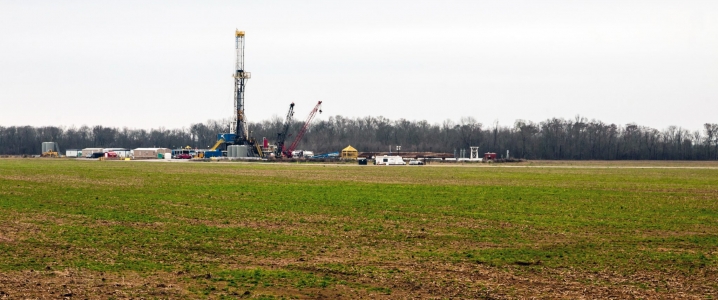The shale gas bonanza may finally be slowing after a decade of skyrocketing growth.
In 2018, the U.S. natural gas industry broke new production records, but demand rose to new heights as well, ensuring that the market remained tight. In fact, natural gas prices spiked in November due to extraordinary low inventory levels and a cold snap that threatened to tighten supplies too much.
However, prices quickly came back down. Mild weather eased pressure on inventory levels, utilities leaned on coal plants to a greater degree, and speculators liquidated some bullish bets that had pushed prices up to multi-year highs.
But a larger trend underway in the U.S. natural gas industry allowed for prices to come back down – production is still soaring and most analysts see ample supplies going forward after winter comes to an end. In fact, Bank of America Merrill Lynch went so far as to predict “congestion” at storage facilities as soon as this summer, which is a notable forecast given that the U.S. entered this winter demand season with storage levels at their lowest levels in more than a decade.
The recent decline in natural gas prices – and more importantly, the expectation that inventories will rise sharply this year – has forced several top shale gas drillers to adopt more spending restraint. EQT Corp., the largest natural gas producer in the U.S., lowered its spending plans for 2019.
The Wall Street Journal reports that a handful of other top shale gas producers, including Gulfport Energy and Antero Resources, are also scaling back their ambitions. A slowdown in spending and drilling is exceptional, given that the shale gas industry has been breaking production records – nearly uninterrupted – for more than a decade. Related: Is This A Buy Signal For Crude Oil Futures?
Part of the problem is that production has simply grown by so much that analysts now question whether the market will be able to absorb all of the new supply.
Natural gas production is soaring in the Permian basin, where it is produced as a byproduct. E&Ps are targeting oil in the Permian, and gas is virtually worthless because of the glut. But because gas is not the main target, Permian drillers don’t really care that the gas market is oversupplied and that prices are plumbing new depths.
But that puts extra pressure on gas-focused companies, particularly those in the Marcellus and Utica shales (the Appalachia basin), such as EQT. Companies in Pennsylvania, Ohio and West Virginia do not have the benefit of producing oil. They are aiming for natural gas and other liquids, so lower natural gas prices cuts to the core of their business.
The Wall Street Journal reports that investors are pressuring the likes of EQT, Antero Resources and Gulfport Energy, demanding improvement in their financial performance. For years, Wall Street rewarded shale gas companies for their production growth, which was the main metric investors used to gauge future financial prospects. But with so many companies posting very disappointing returns, despite huge production, investors are falling out of love with the growth model.
“Growth is a disease that has plagued the space, and it needs to be cured before the sector can garner long-term investor interest,” Matthew Portillo, director of exploration and production research at Tudor, Pickering, Holt & Co., told the WSJ. “The industry has been under significant shareholder pressure to change the way it allocates capital.”
A similar trend has been underway for some time in the oil industry, with shareholders rewarding companies that are hiking dividends and share buybacks instead of spending more on production growth. Related: Political Crisis In Venezuela To Reshape OPEC
As the WSJ notes, the share prices for EQT, Antero and Gulfport are down more than 40 percent in the past two years, a period of time that saw strong gains for the broader S&P 500. “This is stockholder value destruction in the starkest possible terms,” Firefly Value Partners LP, a firm that owns 8.1 percent of Gulfport’s shares, wrote in a note to Gulfport’s board, according to the WSJ.
EQT, for its part, has seen an internal revolt. Toby and Derek Rice, the founders of Rice Energy, which was purchased by EQT in 2017, are pushing to take over as leaders of EQT because they blame current management for the company’s poor performance. The Rice family still owns 2.7 percent of EQT, and they are using their ownerships takes, plus the leverage of hedge funds that own portions of the company, to take over the executive leadership.
While the palace intrigue inside EQT is interesting by itself, the larger point is that the shale gas giant is struggling to impress Wall Street even as its production soars. Under pressure, EQT recently said that it would spend nearly $700 million less this year than it did in 2018. The decision suggests that even the largest shale gas companies are beginning to succumb to intense pressure from Wall Street, and they may already be reining in their ambitions. That does not mean that gas production will fall, but it could mean that the years of blistering growth rates could be coming to an end.
By Nick Cunningham of Oilprice.com
More Top Reads From Oilprice.com:
- What’s Behind Saudi Arabia’s New Downstream Strategy?
- Oversold Lithium Could Be About To Rally
- Trump Looks To Neutralize Pipeline Opponents


















